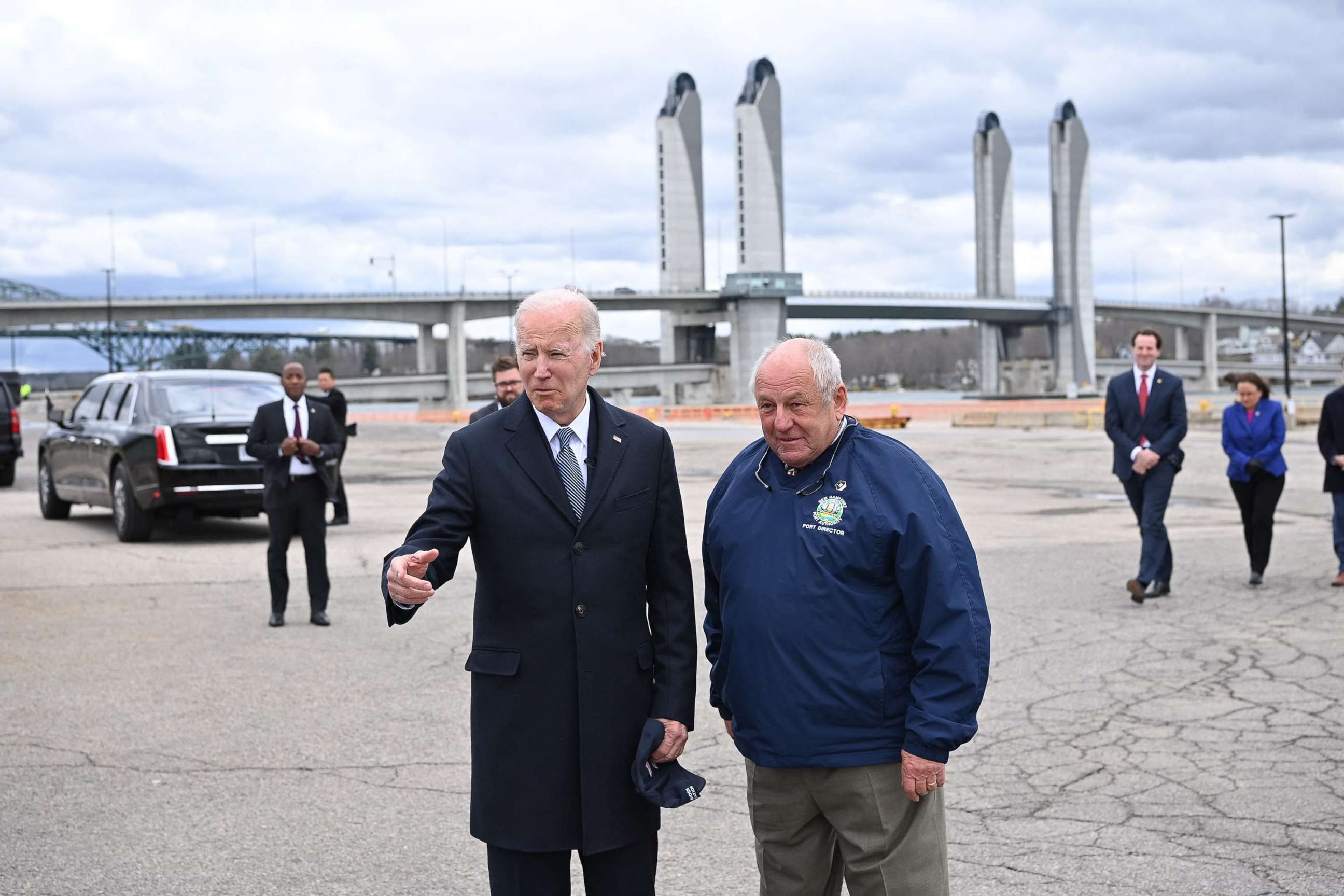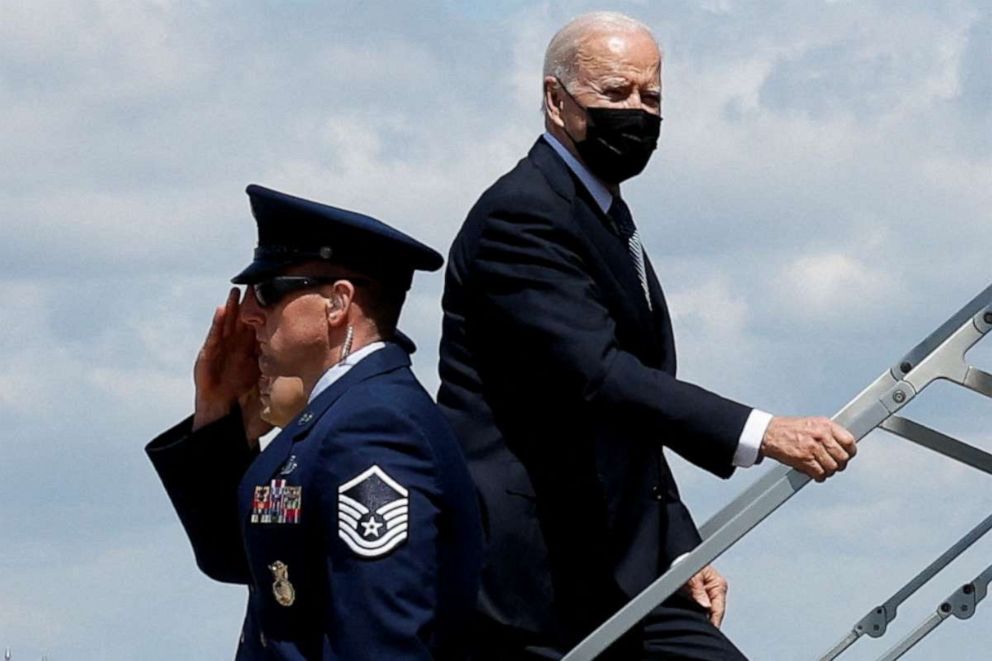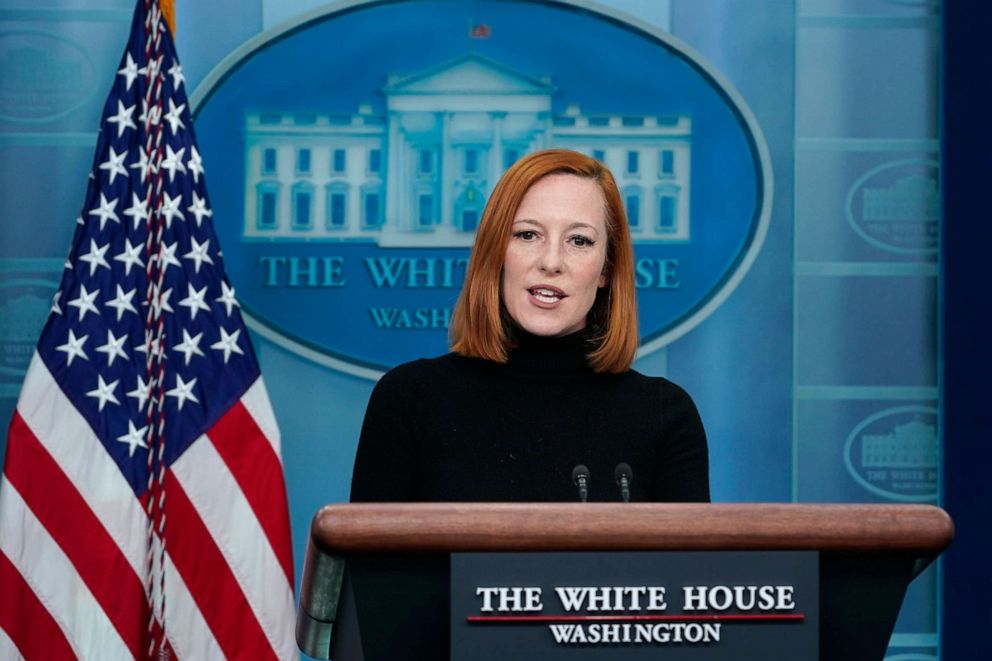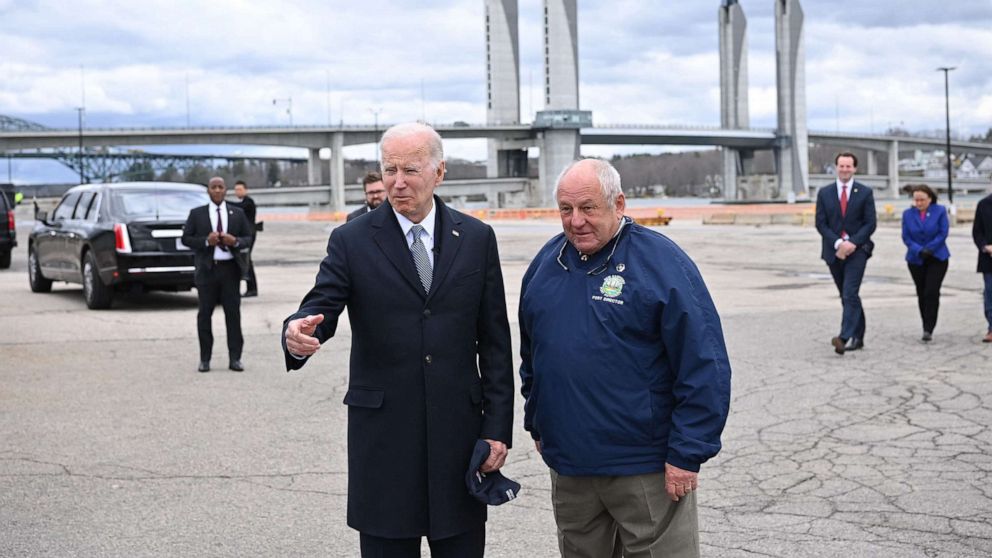Biden reacts to judge striking down transportation mask mandate
President Joe Biden gave his first public reaction to a federal judge striking down the government's transportation mask mandate, telling reporters on Tuesday that Americans should make their own decisions on wearing masks on planes -- further muddying White House and administration messaging on pandemic mitigation efforts.
"That's up to them," Biden said, after a reporter asked, "Should people continue to wear masks on planes?"
When asked then if his administration would appeal the judge's ruling, Biden only said, "I haven't spoken to the CDC yet," referring to the Centers for Disease Control and Prevention.

Later, when asked again whether his administration would appeal, Biden reiterated that he hasn't received a briefing from the CDC and said he does not yet know what he plans to do.
"Follow the science," Biden told reporters.
Biden boarded Air Force One earlier Tuesday wearing his face mask, traveling to Portsmouth, New Hampshire, to tout the Bipartisan Infrastructure Law. The White House said that masking would be required for those traveling with the president, adding it's "in line with CDC guidance." But on the way back to Washington, Biden opted not to wear one as he, once again, boarded Air Force One.
While Biden did not take the chance Tuesday to strongly defend the CDC mandate, after a Florida judge characterized it as CDC overreach, White House press secretary Jen Psaki delivered a different message to reporters not even an hour ahead of Biden, saying the White House continues to encourage people to mask up while traveling.
Despite the mandate no longer being enforced, but some localities still requiring face masks, Psaki said the White House disputes "the notion that people are confused" over the ruling and next steps.
"We're continuing to encourage people to wear masks in public transit. They'll make that decision because it's obviously not being implemented at this moment in time, but we'll continue to abide by CDC guidance," she said.

But Psaki did signal the administration might appeal, saying, "Typically, yeah. It typically takes a couple of days to review and make an assessment."
U.S. District Court Judge Kathryn Mizelle struck down the mask mandate on public transportation Monday -- effectively voiding the requirement on planes, trains, and buses as well as inside airports across the country, writing in her decision that the mandate "exceeds the CDC's statutory authority and violates the procedures required for agency rulemaking under the [Administrative Procedure Act]."
Psaki called it a "disappointing decision" at her briefing Monday as the White House had just learned of the ruling, and hours later an administration official said the order was no longer in effect as agencies evaluated what to do next.

A spokesperson from the Department of Justice told ABC News it was "reviewing the decision."
ABC News Contributor Dr. John Brownstein, a professor at Harvard Medical School and chief innovation officer of Boston Children's Hospital, told ABC News Live on Tuesday that the decision "sets a really tough precedent for public policy."
"Everybody wants to remove the masks, but we are going to see an increased spread -- and it's not really up to a single judge to set public health policy for the entire country," he said. "It's going to put a lot of people at risk."
Addressing how some local requirements will still be in effect, Brownstein said, "It's going to be confusing for people to fully understand what they're required to do and what is optional at this point."
Last week, the Transportation Security Administration extended the mask mandate until May 3, citing a rise in COVID cases across the country with the new BA.2 variant. It's unclear whether the administration would have continued it beyond that point.
White House COVID response coordinator Dr. Ashish Jha weighed in with his first public comment Tuesday afternoon, calling the decision "deeply disappointing" and suggesting people continue to mask up on planes -- as he says he will.
"CDC scientists had asked for 15 days to make a more data-driven durable decision," Jha tweeted. "We should have given it to them".
ABC News' Justin Gomez and Cheyenne Haslett contributed to this report.




